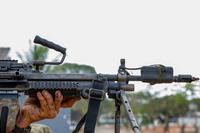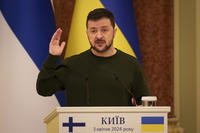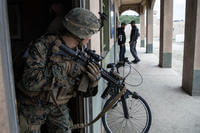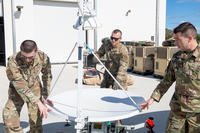Utter the term ITAR here at the Paris Show and both Europeans and Americans often cringe. The Europeans know it as the set of regulations that make it incredibly challenging for them to buy American weapon systems, no matter how close they are to the administration in charge. The Americans know it as a never-ending headache that makes foreign sales cumbersome and slow -- at best -- and can easily lead to a silent no from the State Department, which oversees the regulations.
The Obama administration talks often and often convincingly about partnerships with allies and their tremendous importance to US national security interests. As Michele Flournoy, undersecretary of Defense for policy, put it in her recent QDR remarks, “allies and partners are absolutely essential.”
And there are important policy decisions ahead. Japan still wants to buy the F-22, export version or not. I hear a key radar sale to an ally is pending. And there will be the day to day grind of working with partner countries to build the Joint Strike Fighter.
And ITAR decisions -- whether to allow sales of a weapon to a foreign government -- will be crucial to each one of those. Arms export license decisions -- based on the ITAR -- are regarded as one of the essential coins of the allied realm. When the US says no to a sale or takes months to decide, allies are often puzzled, frustrated or just plain mystified because the process lacks transparency although there have been efforts in the last few years to improve this a bit.
Given the frustrations heard from the Europeans here in Paris, I spoke with several very experienced Americans who work with Europeans, industry and the US government about just what Europe should do over the next six months to make sure they get their messages through to the Obama administration.
Joel Johnson, an analyst at the Teal Group in Washington who used to be industry's point man on arms export policy at the Aerospace Industries Association, counseled NATO allies to use meetings of their top leaders -- military and civilian, up to and including the British prime minister, French president etc. -- to raise the issue with senior American officials at the highest levels possible. Don't worry about embarrassing anyone, he said. Don't soft peddle your case. Be polite, direct and raise the issue at each venue to keep the squeaky wheel squeaking. Otherwise, U.S. officials will assume things are fine and go on as they are.
Another senior American industry official noted that the Obama administration still has many senior people to get in place at the State Department -- the lead agency on arms export issues -- and at the Pentagon. A few crucial positions are close to being filled. The outgoing chairman of the House Armed Services strategic forces subcommittee, Rep. Ellen Tauscher, looks to be on her way to Senate approval as undersecretary of State for arms control and international security. And a senior advisor of Secretary of State Hillary Clinton, Andy Shapiro, is also close to clearing the Senate as assistant secretary for political-military affairs, usually the post who handles the day to day issues of arms export policy and compliance. The industry official said Shapiro's choice appeared to offer some hope, if not of policy changes, of access to Clinton when policy disputes arise or an important arms export license is languishing for one reason or another.
So, will the Obama administration deliver on its talk of close relations with "allies and partners?" Much will depend on the allies helping them to see the light.







